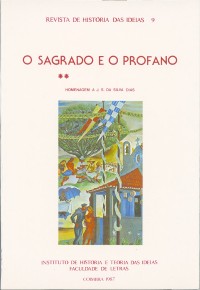Please use this identifier to cite or link to this item:
https://hdl.handle.net/10316.2/45309| DC Field | Value | Language |
|---|---|---|
| dc.contributor.author | Horst, Ulrich | - |
| dc.date.accessioned | 2019-02-06T12:06:43Z | |
| dc.date.accessioned | 2020-09-30T23:26:46Z | - |
| dc.date.available | 2019-02-06T12:06:43Z | |
| dc.date.available | 2020-09-30T23:26:46Z | - |
| dc.date.issued | 1987 | - |
| dc.identifier.issn | 0870-0958 | - |
| dc.identifier.issn | 2183-8925 (digital) | - |
| dc.identifier.uri | https://hdl.handle.net/10316.2/45309 | - |
| dc.description.abstract | In recent research Vitoria’s ecclesiology has not received the attention it deserves. It has rarely been taken into consideration that he is one of the great theorists on ecclesiastical reform in the decades before the Council of Trent. It can be shown that his Relectiones on the nature and the authority of the state have to be valued as elements of a reform project of European dimensions. In the attempt to realize the great programme Vitoria even seeks alliance with the conciliarists, with whose ideas he has been well acquainted since his studies at Paris. No doubt, he wants to leave the Pope’s plenitudo potestatis untouched, but in a way which gives the council an important part in the reform of the church. Because of negative experience Vitoria does not expect any impulse for the reform from the Pope or the existing canon law. In his opinion the reform can only be brought about with the help of a council. He sees the main obstacle for the renovation of the church in the time’s arbitrary practice of granting dispenses. To remove these grievances he wants the council to promulgate adequate leges irritantes. They should put the Pope under obligation as far as necessary to render any abuse impossible. In the event of the Pope refusing Vitoria concedes a right of resistance to the bishops. The complex synthesis of Papalism and Conciliarism worked out by Vitoria should not be successful. The future belonged to a strictly papal ecclesiology. Therefore Vitoria, in this respect, was soon forgotten even in his own school. | eng |
| dc.language.iso | deu | - |
| dc.publisher | Imprensa da Universidade de Coimbra | - |
| dc.rights | open access | - |
| dc.title | Ekklesiologie und Reform: Voraussetzungen und Bedingungen der kirchlichen Erneuerung nach Franz von Vitoria | por |
| dc.title.alternative | Ecclesiology and the presuppositions and prerequisites of church reform and revewal according to Franz von Vitoria | por |
| dc.type | article | - |
| uc.publication.collection | Revista de História das Ideias vol. 9, Tomo II | - |
| uc.publication.firstPage | 117 | - |
| uc.publication.lastPage | 160 | - |
| uc.publication.location | Coimbra | - |
| uc.publication.journalTitle | Revista de História das Ideias | - |
| uc.publication.volume | 9, Tomo II | por |
| dc.identifier.doi | 10.14195/2183-8925_9-2_3 | - |
| uc.publication.orderno | 6 | - |
| uc.publication.area | Artes e Humanidades | - |
| uc.publication.manifest | https://dl.uc.pt/json/iiif/10316.2/45309/250931/manifest?manifest=/json/iiif/10316.2/45309/250931/manifest | - |
| uc.publication.thumbnail | https://dl.uc.pt/retrieve/11917425 | - |
| item.grantfulltext | open | - |
| item.fulltext | With Fulltext | - |
| Appears in Collections: | Revista de História das Ideias | |
Files in This Item:
| File | Description | Size | Format | |
|---|---|---|---|---|
| ekklesiologie_und_reform.pdf | 456.82 kB | Adobe PDF |  |
Items in DSpace are protected by copyright, with all rights reserved, unless otherwise indicated.
